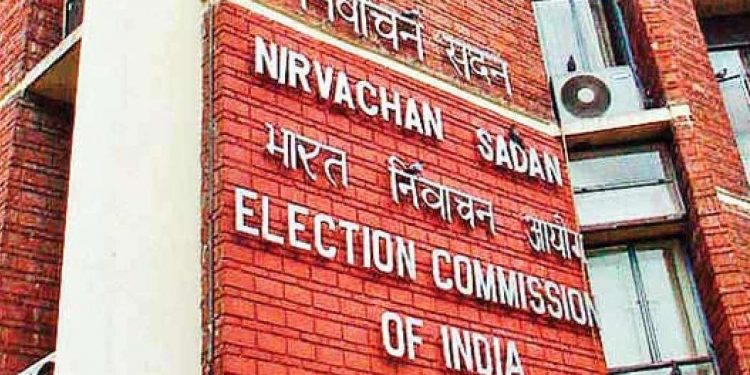The Election Commission’s role in conducting free and fair polling during the ongoing elections to the four states of West Bengal, Assam, Kerala, Tamil Nadu and the Union Territory of Pondicherry has unfortunately caused misgivings. Starting from the use of Aadhaar data to send bulk messages through phones by the BJP in Pondicherry, banning A Raja of DMK while relaxing a similar ban for a BJP campaigner in Assam to central forces getting involved in Bengal voting process highlights the EC’s self willed failures.
The EC’s image of neutrality as an independent constitutional body has been seriously impaired. It seems to be going totally soft on the BJP and biased against non-BJP Opposition parties. This does not augur well for a healthy democracy or for a prime organization, built on tax payers’ money, such as the EC. The latest instance of EC’s partisan action is the reduction of its 48-hour campaign ban on Assam Minister Himanta Biswa Sarma to 24 hours announced on April 3 after the powerful BJP leader offered an ‘unconditional regret’ and requested the poll panel to reduce the ban period. One may wonder why the EC does not extend this same relaxation to leaders and campaigners of other parties. The EC’s decision to accede to the request is unacceptable on two counts. First, withdrawal or relaxation of campaign bans is rare. Secondly, it greatly tarnishes the EC’s image of impartiality as it overturns its own earlier decision, making it look as if it did not apply its mind when it slapped the ban initially.
Ironically, the only beneficiary of such decisions turns out to be the ruling BJP every time, which is more alarming for the independence of the commission. During the last Lok Sabha polls, the EC had lifted its ban on Amit Shah’s electioneering in Uttar Pradesh after he assured the poll panel that he would not ‘make any utterances violating’ the model code of conduct. The EC did not cover itself with glory when it looked away at Prime Minister Narendra Modi’s highly communal remark during the last UP Assembly election when he infamously spoke about “kabarastan” and “samshan” in a blatant attempt to polarize votes.
The Opposition Congress, which filed the complaint leading to the ban on the Assam Minister, slammed the EC’s decision and accused it of failing to discharge its obligations to preserve the purity of the electoral process. For, Sarma, who is contesting from the Jalukbari seat in the third and final phase of Assam elections on April 6, can now attend rallies and meetings during the last 24 hours before campaigning ends in the state. Beginning 8 a.m. April 4 he is slated to appear at a series of rallies and road shows including one with Union Home Minister Amit Shah.
The EC is under a cloud now.
Its initial order on April 2 debarred Sarma for the rest of the campaign. The action followed a complaint against Sarma for his remark that Bodoland People’s Front (BPF) chairperson Hagrama Mohilary would be sent to jail by the National Investigation Agency (NIA). BPF is a constituent of the Congress-led alliance. In fact, a strange and unheard thing has happened in the Assam polls when EVMs were found in the car of an Assam BJP candidate. The explanation offered that the EC officials’ car broke down forcing them to take the help of the BJP leader is astounding. The EC’s order suspending four officials can hardly extenuate the guilt since the incident is a reflection of the steady erosion of independence of the poll panel.
Such events prove, over and over again, that it is not the institutions that are at fault. Many may recollect a time when the Election Commission of India had risen to amazing heights and was viewed as one of the premier global organizations capable of handling immensely large elections over huge geographical areas. People had lately even suggested that the 2020 US Presidential election could have been better managed if the EC of India was given full control and charge over the American process. All such talk and impressions are created, over time, when the human element at the helm of such prestigious institutions is aware of the adage: With great power comes great responsibility.
Sadly, the people holding reins of the EC today are the ones who will go down in history as being responsible for the fall and degradation of such a great institution.






































